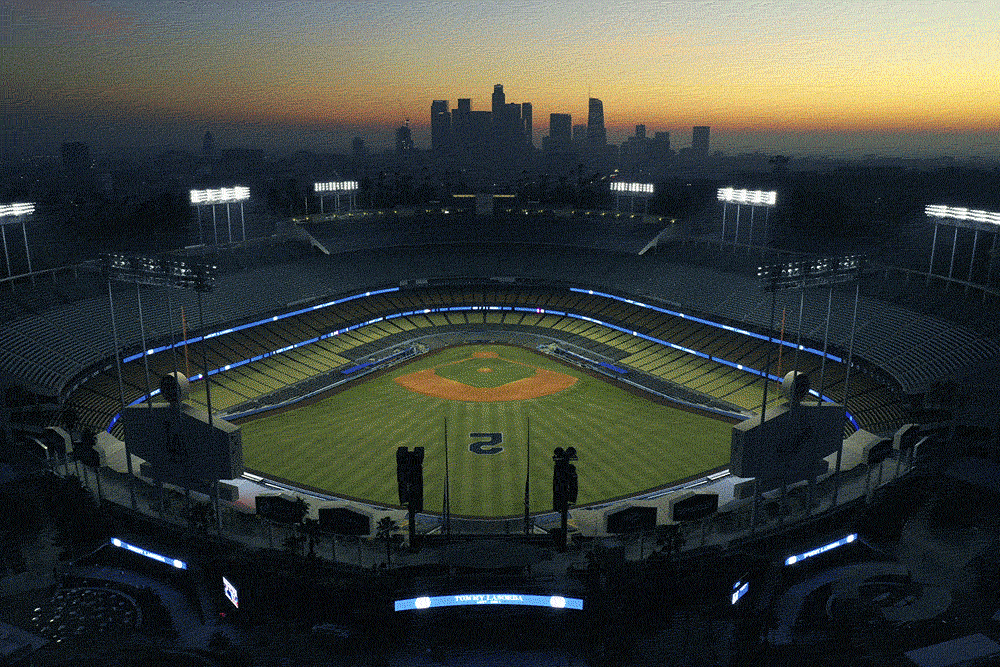Polish Town Goes Wild Over Wilder
- Share via
SUCHA BESKIDZKA, Poland — Billy Wilder remembers almost nothing about this sleepy town in the Carpathian Mountains where he made his earthly debut nearly nine decades ago.
“I left when I was 6,” he said in a telephone interview from Los Angeles. “That was a long time ago. Poland wasn’t even Poland then.”
The faded memory works both ways. Most people here haven’t a clue about Wilder, whose name and Hollywood fame draw only blank stares. “Sunset Boulevard”? “Double Indemnity”? “Witness for the Prosecution”? “The Seven Year Itch”?
B-I-L-L-Y W-I-L-D-E-R?
“Never heard of him,” said Janina Gasiorowska, 67, whose home next to the train station, some say, once belonged to the Wilder family.
“We’re not interested in films,” her husband, Jan, 77, grumbled over the sound of a crackling transistor radio. “We only get one channel on the television.”
But after a nearly 85-year separation, Sucha Beskidzka and its Hollywood prodigy have decided it’s time to get reacquainted. The occasion is twofold: the town’s centennial and Wilder’s 90th birthday.
This month marks the 100th anniversary of Sucha Beskidzka’s classification as a municipality by the Austro-Hungarian Empire, which encompassed much of southern Poland before World War I. And on June 22, Wilder will celebrate his 90th birthday--an achievement, he said, that means “I am not a young man anymore.”
As part of the dual celebration, officials here have been waging a Billy Wilder awareness campaign.
The local newspaper has told his life story, which begins somewhere near the train station at a restaurant run by his father; the exact location is not certain. And the town’s only movie theater opened its doors to teenagers who watched free screenings of two Wilder classics, “Sabrina” and “Some Like It Hot.”
The biggest effort has come on School Street, just around the corner from the train station. Town officials and several hundred children recently lined the curbside for its official rededication as Ulica Billy Wildera, Polish for Billy Wilder Street.
It was one of only two streets renamed to commemorate the town’s centennial, the other honoring a nobleman whose family once occupied the town’s 17th century castle.
“It is not every day in Europe that streets are named after Americans,” said Zbigniew Rogowski, a Polish journalist who writes about Hollywood and suggested the idea. “It is honoring a man who is not appreciated enough in Poland and Europe for the great creator he is.”
Ulica Billy Wildera is only a few blocks long and dead-ends in a complex of gray vocational schools; the original choice, a road leading from the main square to the castle, was dropped after residents opposed fiddling with such a prominent street.
“Maybe he deserved to have a bigger street named after him, but this way it is very close to where he lived,” said Mayor Andrzej Siwiec.
Alley or boulevard, town officials hope the Wilder name will help put Sucha Beskidzka on the map, drawing film buffs and other visitors to a town badly in need of tourist dollars. There is also talk of putting a Billy Wilder museum in the castle, although Siwiec said that would require cooperation from Wilder--and lots of money--because the dilapidated building has been neglected for years.
Indeed, much of this colorless town could use a face-lift. Set in the picturesque foothills of the Carpathians, it possesses few of the charms of its natural surroundings. The main street is dominated by drab concrete buildings, a product of the town serving as the region’s administrative center. Its pulse is surprisingly lively, nonetheless, thanks to several thousand teenagers attending the cluster of schools--with courses from hotel services to German language--on Ulica Billy Wildera.
Wilder, who has won six Academy Awards and countless other accolades, described the street renaming as “one of the highest points in my life” in a letter to town officials.
“They wouldn’t just grab anybody and name a street after him,” he said in the interview. “They must feel that I deserve it. And God bless them.”
Wilder’s Polish roots are little-known because he spent most of his early years in Austria and Germany. But his Polish passport helped him escape Nazi Germany in 1933 at a time when other Jews were not allowed to travel. His mother, stepfather and grandmother all died at Auschwitz.
Wilder said that he is suffering from vertigo and will be unable to travel to Poland for this year’s festivities but plans to include his hometown on a European journey next year. He looks forward to the day, he said, when he takes a stroll down Ulica Billy Wildera.
More to Read
Only good movies
Get the Indie Focus newsletter, Mark Olsen's weekly guide to the world of cinema.
You may occasionally receive promotional content from the Los Angeles Times.









